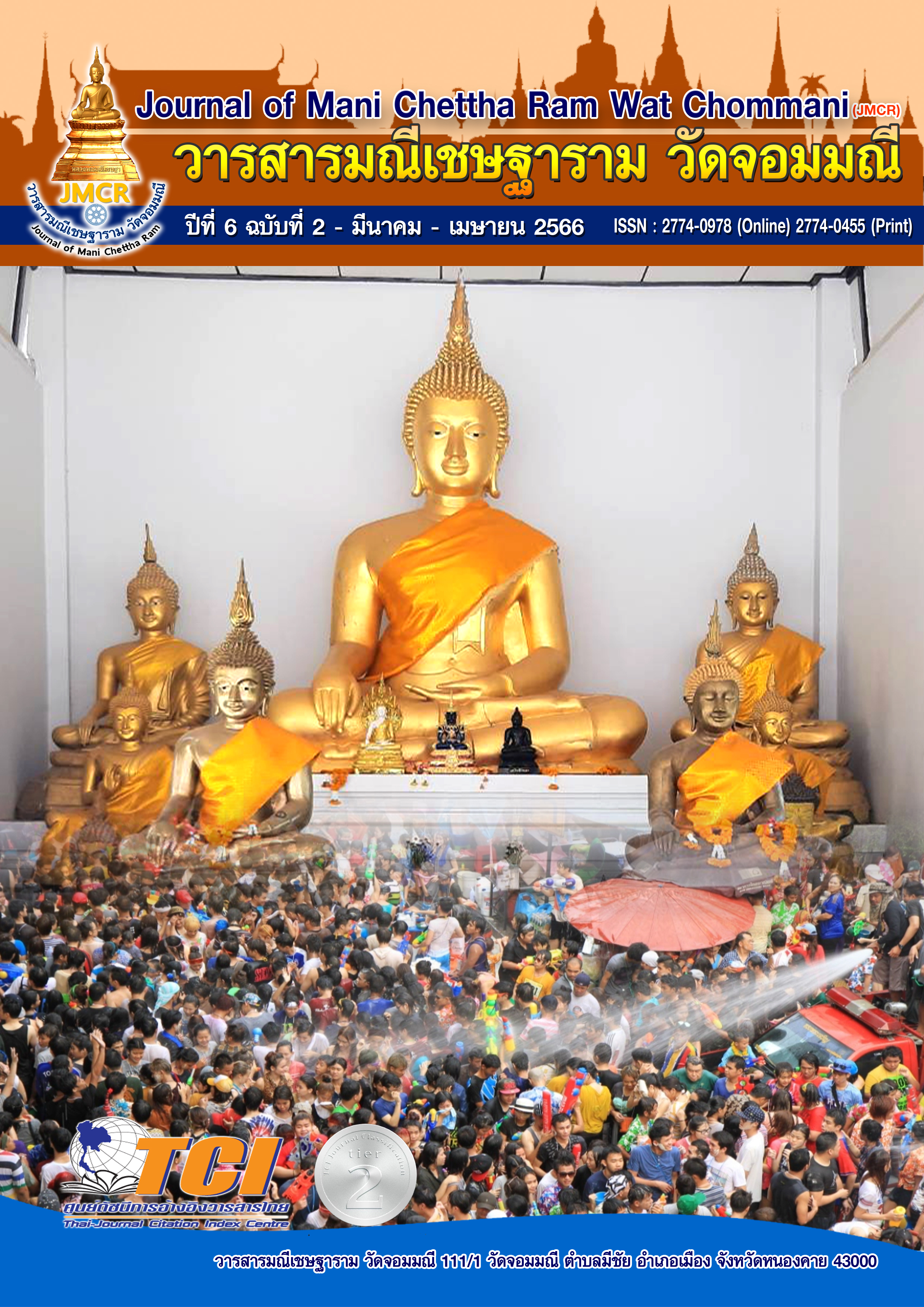AN APPLICATION OF APARIHANIYADHAMMA PRINCIPLE FOR ADMINISTRATION OF THAPO SUBDISTRICT ADMINISTRATIVE ORGANIZATION, SADOA DISTRICT, SONGKHLA PROVINCE
Keywords:
Aparihaniyadhamma Principle, Education administration, Subdistrict Administrative OrganizationAbstract
The objectives of this research were 1) an application of Aparihaniyadhamma principle for the administration of Thapo subdistrict administrative organization 2) to analyze problems and guidelines for the development of Aparihaniyaharma principle for the administration of Thapo subdistrict administrative organization. It is mixed Method Research. It consists of quantitative research and qualitative research. The population used in the research was 82 people and 5 key informants. The research tools were questionnaires and interviews. The statistics used in data analysis were frequency, percentage, mean, and standard deviation.
The results of the research were found that 1) An application of Aparihaniyadhamma principle for the administration of Thapo subdistrict administrative organization, all 7 aspects were averaged at a high level (m= 4.40, s = 0.37) When considering each aspect in order of average from highest to lowest, it was found that the aspect with the highest average is the obedience to the average commander was at the highest level (m = 4.76, s = 0.58), followed by Honoring and protecting women the mean was at a highest level (m 4.53, s = 0.43) and the side with the mean the lowest is the promotion and preservation of good culture and traditions, the mean was at a high level, (m = 4.31, s = 0.55) 2) The guideline for administration of Thapo subdistrict administrative organization found that there should cooperate with personel and meeting more, in various activities in organization, should create knowledge and understanding for personnel in the field of rules and regulations, activities should be organized within good relationship between personnel and supervisors and there should have right between men and women by delegating operations to culture to personnel in the organization and protection of religion and traditions should be promoted and preserved and supported by providing protection.
References
โกวิทย์ พวงงาม. (2553). การจัดการตนเองของชุมชนและท้องถิ่น. กรุงเทพมหานคร : บพิธการพิมพ์.
ทองดี ศรีตระการ. (2559). การพัฒนารูปแบบการบริหารงานวิชาการตามหลักอปริหานิยธรรม. วารสารปัญญาปณิธาน, 1(1), 2.
พระครูนิกรสุนทรกิจ. (2553). การศึกษาวิเคราะหเรื่องความสามัคคีในคัมภีร์พระพุทธศาสนาเถรวาท. ใน วิทยานิพนธ์พุทธศาสตรมหาบัณฑิต. มหาวิทยาลัยมหาจุฬาลงกรณราชวิทยาลัย.
พระทวีป กลฺยาณธมฺโม. (2553). การศึกษาวิเคราะห์หลักกัลป์ยาณธรรมสำหรับการดำรงชีวิตที่ปรากฏในคัมภีร์พระพุทธศาสนา.วิทยานิพนธ์พุทธศาสตรมหาบัณฑิต. มหาวิทยาลัยมหาจุฬาลงกรณราชวิทยาลัย.
พระธรรมโกศาจารย์ (ประยูร ธมุมจิตโต). (2544). คุณธรรมสำหรับนักบริหาร. พิมพ์ครั้งที่ 5 กรุงเทพมหานคร : มูลนิธิพุทธธรรม.
ศิริวรรณ เสรีรัตน์ และคณะ (2545). องค์การและการจัดการ.กรุงเทพมหานคร : บริษัท ธรรมสาร จํากัด.
องค์การบริหารส่วนตำบลท่าโพธิ์. (2565). ข้อมูลสถิติประชากร. เรียกใชเมื่อ 4 พฤศจิกายน 2565, จาก https://www.thapo.go.th/content/information.




